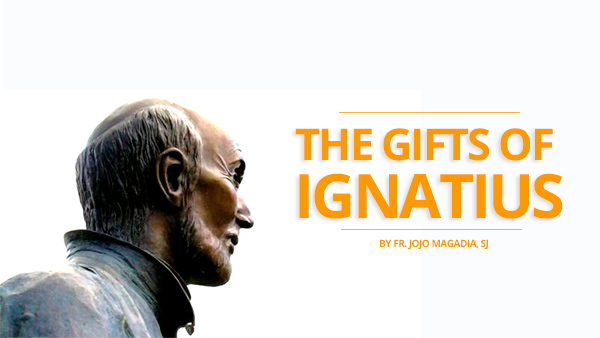


Fr. Jose Cecilio J. Magadia, SJ
Readings: Dt. 30:15-20; Phil. 3:8-14; Lk. 9:18-26
July 31, 2015
The readings for the Feast of St Ignatius of Loyola speak of discipleship. Even more importantly, they tell us about the radical way in which Ignatius lived this following of the Lord – a following that is complete and absolute. You follow or you don’t. No in-betweens. No maybe’s. No ifs or buts. Just yes or no.
The reading from Exodus presents this stark choice – between life and death, between light and darkness, between blessing and curse. It is the same choice presented by St Ignatius in his Meditation on the Two Standards – between Christ and Satan. Exodus exhorts us to choose life always.
In the letter to the Philippians, St Paul speaks of running the race to grasp the prize, which is Christ, and Christ alone. Once we have Christ, all else feels like rubbish. All else can be given up, set aside. All attention is focused, and the heart is consumed by that one pearl of great price. And if anything else must come in, it comes in through Christ. Otherwise, it does not come in at all.
In the Gospel, the Lord himself tells his disciples that it does not profit a man to gain the whole world, if he loses himself. The invitation is once again extended – to take up one’s cross, to deny one’s self and to follow the one and only true way. Through these readings run the clear theme of discipleship.
But I invite you to look again, and consider another level of consideration. On this feast day, we are reminded that Ignatius, himself, emphasizes not just what we choose, but that we choose … in a manner that is led by the Spirit.
Life offers many opportunities to make choices – from the simple everyday types that do not need much effort to consider to those that determine a whole future. It is in the face of these life-changing choices that Ignatius in his Spiritual Exercises gives us gifts to guide us. Of these many gifts, I emphasize three.
The gifts of silence and contemplation and desire move us forward. They make us ready to choose life and light and blessing, and reject death and darkness and curse. They allow us to see that God is the only real good, and that all else is rubbish. They grant us the freedom to embrace the cross, and the strength to take on any mission ad majorem Dei gloriam, for the greater glory of God.